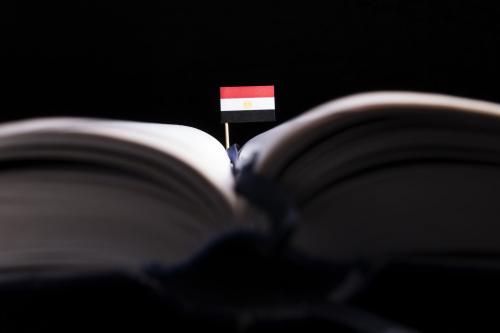Editor’s note: This is the
eighth chapter
, written by Rebecca Winthrop, from the book
Educating Children in Conflict Zones: Research, Policy, and Practice for Systemic Change—A Tribute to Jackie Kirk
.
[1]
A caricature of the education quality debate in conflict contexts would place on one side the reading enthusiasts — those that are narrowly focused on ensuring children learn fundamental reading skills — and on the other the well-being enthusiasts — those that are focused on the range of psychosocial and other benefits of schooling for young people. While exaggerated, this scenario is not far from the discourse in policy circles. In a meeting with policymakers on education and conflict, I once witnessed a very similar discussion play out between a representative of a multilateral donor and a representative of a bilateral donor. One argued that in the early post-conflict period the focus should be on rapid restoration of learning of formal, core subjects (e.g., language, history, and math), and the other argued that a focus on learning outcomes was not important; instead, schools should focus on expressive activities and other forms of psychosocial support.
This chapter argues the need for a more nuanced understanding of education quality in conflict contexts, one that connects the multiple dimensions of quality by drawing on the insights of children themselves as to the values they place on learning. As Jackie Kirk and I have argued previously, literacy and numeracy skills greatly augment children’s and young people’s survival and life skills (see Chapter 7). For example, being able to read medicine labels, signs, newspapers, and registration or identification cards is an important and useful skill for navigating a new and shifting environment. The perception of learning well, even if in fact children are learning very little, also supports their psychosocial well-being. The belief that they are on the path to a brighter and better future, through the knowledge they are gaining at school, especially at the primary level, is a powerful force in helping children cope with difficult environments.
This chapter deepens the exploration of primary students’ own perspectives on learning in the three conflict settings (in Afghanistan, Eritrean refugee students in Ethiopia, and Liberian refugee students in Sierra Leone) presented in Chapter 7 of this volume. To understand and conceptualize the different ways that children express the importance of learning, the study draws on a framework informed by Habermas’s theory of knowledge (Habermas, 1971; Winthrop, 2008). Methodologically, the chapter draws on data collected in 2004 for a study of the International Rescue Committee’s Healing Classrooms Initiative (see Winthrop & Kirk, 2008, and Winthrop, 2008, for a complete review of the study methodology).
[1] Mundy, Dryden-Peterson, “Educating Children in Conflict Zones: Research, Policy, and Practice for Systemic Change—A Tribute to Jackie Kirk,” New York: Teachers College Press, Teachers College, Columbia University, 2011.


